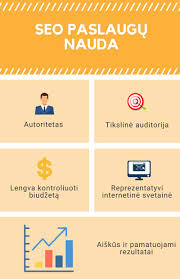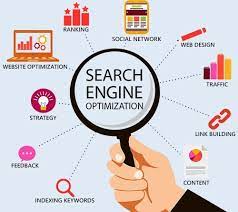Unlocking the Secrets of Effective SEO Strategies for Online Success
The Power of SEO: Boosting Your Online Presence
In today’s digital age, having a strong online presence is crucial for businesses looking to succeed in the competitive online landscape. Search Engine Optimization (SEO) plays a vital role in helping businesses improve their visibility and reach on search engines like Google, Bing, and Yahoo.
SEO involves a range of strategies and techniques aimed at enhancing a website’s ranking on search engine results pages (SERPs). By optimising various aspects of a website, such as content, keywords, meta tags, and backlinks, businesses can increase their chances of appearing higher in search results when users look for relevant information or products.
Benefits of SEO
Implementing effective SEO strategies offers numerous benefits for businesses:
- Increased Visibility: By improving your website’s ranking on search engines, you can attract more organic traffic and reach a wider audience.
- Enhanced User Experience: SEO involves creating high-quality content and improving website usability, resulting in a better experience for visitors.
- Higher Conversion Rates: When your website ranks higher in search results, it increases the likelihood of converting visitors into customers or leads.
- Builds Credibility: Ranking well on search engines can establish trust and credibility with your target audience.
Key SEO Strategies
Some essential SEO strategies that businesses should consider include:
- Keyword Research: Identifying relevant keywords that your target audience is searching for can help you create valuable content that resonates with them.
- On-Page Optimization: Optimising meta tags, headings, images, and internal links on your website can improve its visibility to search engines.
- Link Building: Acquiring quality backlinks from reputable websites can boost your site’s authority and credibility.
- Mobile Optimization: Ensuring that your website is mobile-friendly is crucial for ranking well in mobile search results.
The Future of SEO
As search engines continue to evolve and update their algorithms, staying abreast of the latest trends and best practices in SEO is essential. Voice search optimization, local SEO, and featured snippets are some emerging areas that businesses should focus on to stay ahead in the digital landscape.
In conclusion, investing in SEO is an investment in the long-term success of your business online. By implementing effective SEO strategies tailored to your business goals, you can enhance your online visibility, attract more traffic, and ultimately drive conversions. Embrace the power of SEO today and watch your online presence soar!
7 Essential SEO Tips for Boosting Your Website’s Visibility
- Create high-quality, relevant content for your website.
- Optimize your website’s meta tags, including title tags and meta descriptions.
- Use appropriate keywords throughout your content to improve search engine rankings.
- Improve website loading speed for better user experience and SEO performance.
- Build quality backlinks from reputable websites to increase your site’s authority.
- Optimize images on your website with descriptive filenames and alt text.
- Regularly monitor and analyse your SEO performance using tools like Google Analytics.
Create high-quality, relevant content for your website.
Creating high-quality, relevant content for your website is a fundamental tip in SEO. By producing content that is informative, engaging, and tailored to the needs of your target audience, you not only enhance user experience but also improve your website’s visibility on search engines. Search engines value quality content that provides value to users, so investing time and effort into creating valuable articles, blog posts, and multimedia can significantly boost your site’s ranking and attract more organic traffic. Remember, content is king in the world of SEO, so prioritising quality over quantity can make a substantial difference in your online presence and success.
Optimize your website’s meta tags, including title tags and meta descriptions.
Optimising your website’s meta tags, such as title tags and meta descriptions, is a crucial aspect of effective SEO. Title tags provide a concise and descriptive title for each webpage, helping search engines understand the content and relevance of the page. Meta descriptions, on the other hand, offer a brief summary that appears in search engine results, enticing users to click through to your site. By crafting compelling and relevant meta tags that incorporate targeted keywords, you can improve your website’s visibility in search results and enhance user engagement with your content. Prioritising the optimisation of these meta elements can significantly impact your site’s performance and ultimately drive more organic traffic to your webpages.
Use appropriate keywords throughout your content to improve search engine rankings.
Utilising relevant keywords strategically within your content is a fundamental aspect of Search Engine Optimization (SEO). By incorporating appropriate keywords that align with your target audience’s search queries, you can enhance your website’s visibility and improve its ranking on search engine results pages. Effective keyword usage not only helps search engines understand the relevance of your content but also increases the likelihood of attracting organic traffic to your site. Remember, integrating keywords naturally and seamlessly into your content can significantly boost your SEO efforts and contribute to better search engine rankings.
Improve website loading speed for better user experience and SEO performance.
Improving your website loading speed is a crucial tip for enhancing both user experience and SEO performance. A fast-loading website not only keeps visitors engaged but also reduces bounce rates, leading to higher retention and conversion rates. Search engines like Google also favour fast-loading websites, considering speed as a ranking factor in their algorithms. By optimising your website’s loading speed, you can provide a seamless browsing experience for users while boosting your site’s visibility and ranking in search engine results pages.
Build quality backlinks from reputable websites to increase your site’s authority.
Building quality backlinks from reputable websites is a crucial strategy in SEO to enhance your site’s authority and credibility. When reputable sites link back to your content, search engines view your website as a reliable source of information, which can positively impact your search engine rankings. By focusing on acquiring backlinks from trustworthy sources, you not only improve your site’s visibility but also establish a strong online reputation that resonates with both users and search engines.
Optimize images on your website with descriptive filenames and alt text.
When it comes to enhancing your website’s SEO, optimizing images is a crucial yet often overlooked aspect. By assigning descriptive filenames and alt text to your images, you not only improve accessibility for visually impaired users but also provide search engines with valuable information about the content of the image. This practice can help boost your website’s visibility in image search results and contribute to overall SEO performance by making your site more relevant and user-friendly.
Regularly monitor and analyse your SEO performance using tools like Google Analytics.
Regularly monitoring and analysing your SEO performance using tools like Google Analytics is essential for maintaining a successful online presence. By tracking key metrics such as website traffic, user behaviour, and conversion rates, you can gain valuable insights into the effectiveness of your SEO strategies. Identifying trends, pinpointing areas for improvement, and adjusting your approach based on data-driven decisions can help you optimise your website for better search engine visibility and overall performance. Stay proactive in reviewing your SEO analytics to stay ahead of the competition and ensure long-term success in the digital landscape.









